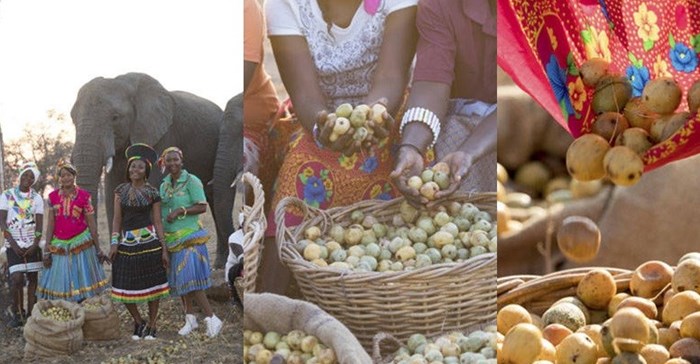






When the elephants have had their fill, the locals collect the fallen marula fruits to sell to the Amarula plant in Phalaborwa, with the blessing of the chiefs of local tribes. A select few also assist with the meticulous fruit sorting, which is normally accompanied by the singing of traditional songs. This process has been the practice since the inception of Africa’s prized liqueur in 1983 and provides financial benefit to 60,000 people annually.
Apart from selling fruit to Distell, the locals also use every bit of the tree for various purposes. Fruit skins are used as crop fertiliser, whilst the bark is used in traditional medicine to treat stomach ailments. The oil derived from the fruit kernels is used extensively too, added to beauty products and used for cooking and food preservation.
Once the sun-ripened yellow fruit is collected, it is de-stoned, crushed and fermented. After fermentation, the marula liquid is distilled and aged in French oak barrels for at least two years in the Western Cape. Dairy cream is added to provide a rich, velvety texture. It is then shipped off to 103 countries around the world.

This year, elephant families trekked here to repeat their annual feast of fruit-laden marula trees, some of which reach up to nine meters in height.
“It is a spectacular sight that will not endure if we fail to conserve these majestic creatures. Today only about 350,000 African elephants still survive in the wild. Their numbers are dwindling year on year due to illegal poaching that is claiming on average 96 elephant lives per day. But we are fighting back,” says Liezl Hayes, Amarula’s regional brand manager.
With elephants so central to the marula ecosystem, the Amarula brand has since 2002 played a pivotal role in the conservation of the endangered African elephant in South Africa. The Amarula Trust and its conservation partners Wildlife Direct have ramped up efforts to raise awareness about elephant poaching with several global campaigns, including the acclaimed “Name Them, Save Them” and “Don’t Let Them Disappear” campaigns of 2017.
Amarula today is the world’s second-largest cream liqueur and has received numerous international awards for its unique product, packaging and extensive work in elephant conservation.